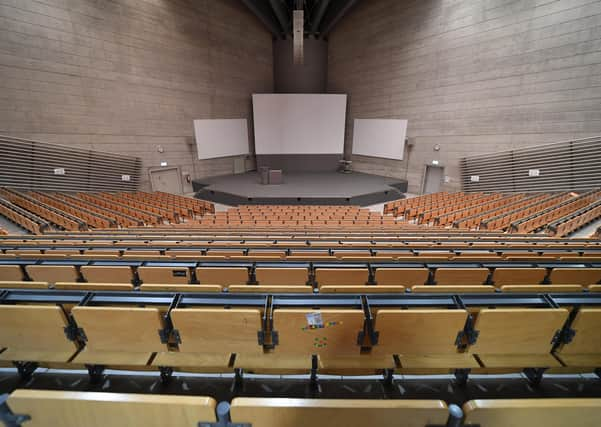Could the Covid pandemic revolutionise higher education - or even make it obsolete?


The coronavirus pandemic has not been easy. Some have lost their lives, some have lost their livelihoods, and many have lost life-changing opportunities.
The student population has been severely affected financially.
Advertisement
Hide AdAdvertisement
Hide AdNot only have they had crucial work placements cancelled but a lot of them have lost their part-time jobs, mostly in retail and hospitality industries.
With the imposition of the national lockdown back in March, many students had to stay at home, hoping to make ends meet on the furlough scheme. Don’t get me wrong, getting 80 per cent of your average pay is not a bad deal but, for some, it might simply not be enough, if their parents have been furloughed as well.
The pain of dealing with landlords is a difficult hurdle students have to overcome during these unprecedented times.
With some universities cancelling all face-to-face teaching, notably Cambridge University, there is no need for many to rent out accommodation away from home. However, contracts have been signed and students have no other option than to move to their new place of residence.
Advertisement
Hide AdAdvertisement
Hide AdWith students forced to pay rent, they are left with rising debt that they still have to repay.
There have been a great deal of stories concerning predicted financial losses for universities in the 2020-21 academic year.
This is not good news for anyone in higher education.
As a student starting university in Lancaster this autumn, I have been worried about this problem.
Will the quality of teaching be worse as a result of cost cutting by universities? Will there be enough academic and mental support for me? Is this experience still worth £9,250 per year?
Advertisement
Hide AdAdvertisement
Hide AdThese are difficult questions to ask, considering that universities themselves may not even have all the answers.
Graduates of 2020 may have been affected the most. Now that they have finished their degree, where do they go next?
With many firms freezing recruitment of external candidates, it has been a total nightmare for them to find somewhere to start a career.
But, there is, potentially, a bigger problem: it might take a significant amount of time for the global economy to recover from this pandemic, meaning graduates of 2021, and beyond, might also land in hot water when it comes to finding a job.
Advertisement
Hide AdAdvertisement
Hide AdMeanwhile, those who started apprenticeships a few years back will be ahead of the game in terms of experience.
Could this pandemic revolutionise the way we perceive higher education? Might it become obsolete?
I am looking forward to starting university this year. I understand that this will be an unusual experience but, with all the potential problems in mind, I feel mentally prepared.
There are a lot of unanswered questions, but I feel ready to start a new chapter of my life.
Comment Guidelines
National World encourages reader discussion on our stories. User feedback, insights and back-and-forth exchanges add a rich layer of context to reporting. Please review our Community Guidelines before commenting.